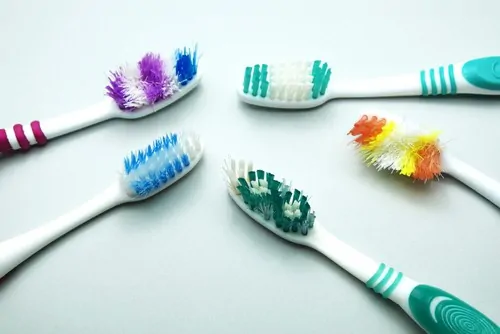Common Dental Emergencies & What to Do About Them
Nobody ever wants to experience an emergency of any kind, and dental emergencies can be particularly concerning and confusing. What’s the right thing to do? What shouldn’t you do? Don’t worry, our dental office in Douglasville is here to help.
Different Emergencies Require Different Care
Not all dental emergencies should be handled the same way, so we’ve outlined some of the most common emergencies and what you can do if they happen to you or a family member. No matter what type of emergency you have, a good rule of thumb is to call your Douglasville dentist as soon as you can.
Chipped or Broken Tooth – First, rinse the mouth and any broken pieces you happen to find with warm water. If there’s blood involved, apply gauze and a bit of pressure to help stop it. Swelling and pain can be reduced with a cold compress.
Knocked Out Tooth – The key to saving a knocked out tooth is to find it as quickly as possible. Once you do, make sure to only touch the tooth crown, not the roots. You can then try to replace the tooth into the socket. If that’s not working, place the tooth in a glass of milk and get to a dentist. Your tooth has the best chance of survival if it’s returned to the socket within an hour.
Toothache – A toothache is typically a sign of a bigger problem and shouldn’t be ignored. Get to your dentist as soon as you can. In the meantime, relieve pain with a cold compress and some medicine. A quick rinse with warm salt water can help too. Whatever you do, do NOT place aspirin directly on the gums as it can cause tissue damage.
Lost Filling – If a filling falls out, it may cause pain because essentially there’s now a hole in your tooth. While you’re waiting to get to the dentist you can buy dental cement at most drugstores that can fill the space. If that’s not an option, a piece of sugarless gum is a short-term fix. Do NOT use gum with sugar as that will increase the pain
At our Douglasville dental office, we’re in the business of keeping smiles healthy, and we never want one of our patients to have a dental emergency. But the truth is, emergencies happen. When they do, we welcome you to call our office for help.
Accepting patients from Douglasville, Lithia Springs, Villa Rica
Celebrate Heart Health Month with Your Douglasville Dentist
It’s not uncommon for the month of February to be full of hearts — candy hearts, heart shaped boxes of chocolate, and a whole host of other gifts given in the name of love. At our Douglasville dental office, we’re all for celebrating love, but this February, we’d like our patients to pay attention to a different kind of heart — the one inside you — and ways to keep it healthy.
Fast Facts on Heart Disease
February is recognized as Heart Health Month and is used to raise awareness of the seriousness and widespread occurrence of heart disease in America. Here are some important facts you should know about heart disease.
- Heart disease is the leading cause of death in the U.S.
- Someone has a heart attack every 34 seconds
- Every 60 seconds, someone dies from a heart disease-related event
- You can decrease your risk of heart disease by making lifestyle changes
The Effect of Oral Health on Heart Health
Why should you take heart health advice from a dentist? Isn’t that what a cardiologist is for? Well, yes, a cardiologist is the best person to help diagnose and treat any heart problems you may have. However, your Douglasville dentist can be a crucial part of your health care team.
In recent years, there have been numerous studies that show a clear link between gum health and heart health. In fact, gum disease doubles a person’s risk of heart attack or stroke. But how?
Your gums are like a portal to your bloodstream. An infection in your gums means that the infection can easily enter your bloodstream. When there is infection in your blood, your body reacts. The liver begins to produce certain proteins such as C-Reactive Protein (CRP) and these proteins lead to all kinds of problems including:
- Inflamed arteries
- Blood clots
- Heart attacks
- Strokes
How Can You Minimize Your Risk?
There are ways to decrease your chance of gum disease and the overall health concerns associated with it. Start with maintaining regular visits to our dental office in Douglasville. In between appointments, make sure to brush your teeth twice a day, floss everyday, and avoid tobacco products. Proper dental care can, in fact, save your life.
Accepting patients from Douglasville, Lithia Springs, Villa Rica
Don’t Be Afraid to Change Your Toothbrush
Are you delaying swapping out your frayed toothbrush for a new model? Well, don’t be! My Douglasville dental office wants you to know that it’s in the best interest of your oral and overall health to make the change to a new toothbrush. We understand that sometimes it’s easy to forget, so here’s a reminder to check the status of your brush.
It’s A Switch’y’ Situation
The wayward, battered bristles clinging to life on your favorite toothbrush are actually a lot less effective at helping your teeth get clean. The American Dental Association (ADA) has these helpful recommendations (and my dental office in Douglasville couldn’t agree more):
Change your brush every three to four months.
Make the switch earlier if bristles start to breakdown.
Children need new brushes more frequently than grownups.
Breaking Down the Bacteria Connection
Some researchers and doctors say that toothbrushes create the perfect environment for bacteria to set up shop. The ADA says that toothbrushes are susceptible to bacterial transfer from the mouth or the air, but it isn’t necessarily a cause for concern. Why? Because our bodies are regularly exposed to germs and are uniquely equipped to defend ourselves from attack.
How to Keep Your Toothbrush Clean
There are few ways you can help keep bacteria in the bathroom at bay and away from your toothbrush.
- Never share your toothbrush with anyone, even family members. Bacteria could be there no matter who you’re sharing with.
- Use good ol’ tap water to rinse away unwanted debris and leftover toothpaste that can give bacteria something to grab onto.
- Keep your toothbrush standing upright when not in use for maximum germ-free storage and the benefits of a good air-drying.
- Separate your family’s brushes when they’re not being used.
- Steer clear of toothbrush covers that can create an arid environment where germs can easily multiply.
Your Douglasville dentist knows how important it is to keep your smile healthy. The same goes for your toothbrush. By making the change regularly and storing it properly, you can ensure your teeth are getting the thorough, germ-free cleaning they need to stay strong.
Accepting new patients from Douglasville, Lithia Springs, and Villa Rica.
4 Little-Known Facts About Straws

Learn more about straw power by digesting these interesting facts. Our Douglasville dental office is pleased to share them with you as another way you can help protect your teeth from decay.
Straw Fact #1 – Help Keep Teeth Stain-Free
Using a straw when enjoying your favorite beverage is good idea to help protect teeth against common staining, especially when there’s long-term exposure to dark-colored drinks like coffee and tea that are consumed daily. By using a straw, you can help avoid constant and direct contact with your front teeth and do your best to keep your smile white.
<h3?Straw Fact #2 – Great Exposure Control
Much like protection your teeth from stains, using a straw can control how much direct exposure drinks have on your smile. It’s all about directing these materials away from your teeth. Even though some contact does occur, it’s minimized when you’re slurping through a straw. This means less bacteria and sugar actually stick to your smile which limits the likelihood of decay.
Straw Fact #3 – Increased Chances of Avoiding Germs
Did you know cups, both at home and in restaurants, can host germs even if they look clean? You can avoid these germs and bacteria by sticking a straw in your cup instead of putting your mouth directly on it to sip.
Straw Fact #4 – Avoid Choking and Burns
Straws can be a real mouth and tooth saver when you’re drinking a hot beverage. These small, plastic tubes allow you to take in smaller amounts of liquid at a time which can help you avoid mouth burns and also reduce the risk for choking.
Your dentist in Douglasville does everything possible to help you keep your teeth healthy. We hope you will do the same. Using a straw is just another simple change you can make to your daily routine that could help benefit your smile. Don’t forget to brush and floss too!
Accepting new patients from Douglasville, Lithia Springs, and Villa Rica.
A Gluten-Free Diet and Your Teeth

What is Gluten?
Gluten is used to describe the proteins found in wheat, rye, and barley. These proteins act like a glue that allows foods to maintain their shape. Many foods contain gluten, even some that may be surprising like some condiments.
What Oral Health Problems Does Gluten Cause in Patients with Celiac Disease?
When someone who is hypersensitive to gluten is exposed to it, they can become very sick. Usually symptoms of celiac disease are found in the gastrointestinal tract, but all parts of the digestive system, including the mouth, can be affected.
Gluten ingestion by those with an intolerance actually blocks the absorption of essential vitamins and minerals. This includes Vitamin D. Without this nutrient, tooth enamel isn’t protected and begins to erode. In fact, 85% of those with celiac disease have enamel damage. Without the protection of enamel, teeth are left exposed to decay and other oral health problems. But that’s not all. For these individuals, consuming gluten may also cause:
-
- Canker sores
-
- Painful, red, swollen gums
-
- Tooth discoloration
-
- And pitted teeth
It’s important to note that gluten itself doesn’t affect individuals without celiac disease the same way it does those who do have it. Seek medical advice before making any significant changes to your diet.
At my Douglasville dental office, we support any diet that makes you feel healthy, including if you choose to eat gluten-free. For our patients that do have celiac disease, we encourage you to avoid gluten, not only for your oral health, but for your overall health as well.
If your teeth have suffered enamel loss or you’re at risk for losing your teeth, whether caused by celiac disease or not, there are ways to help. Schedule a visit with your dentist in Douglasville to discuss your options, which may include dental implants, restorative dentistry options, or cosmetic dentistry treatment.
Accepting patients from Douglasville, Lithia Springs, Villa Rica and beyond.
Toothache Tips From Your Douglasville Dentist
When you have a toothache, all you want to do is make it go away. At my Douglasville dental office, we’re always willing to help ease your toothache pain, but what can you do if a toothache strikes when you’re on vacation or when we aren’t open?
What is a Toothache?
Toothaches can be caused by a number of issues. Most of the time, decay or a cavity is to blame. However, sometimes it’s something more. Severe tooth pain could be a sign of infection, gum disease, a tooth injury, or teeth grinding. No matter what the reason is, it’s important to realize a toothache is your mouth’s way of telling you, “Hey! Something isn’t right in here!” and to call your dentist in Douglasville as soon as you can. The longer a toothache is left untreated, the need for more advanced dental treatment, like a root canal, rises.
What to Do
There’s no telling when a toothache may happen, and occasionally they occur when you can’t get in to see your dentist. That doesn’t mean you have to suffer through the pain until your appointment There are some common at-home toothache remedies you can do to try and take the edge off.
Rinse occasionally with warm salt water, but do not swallow it. The concoction can help extract fluid away from the painful area which eases pressure on the nerves. Less pressure on nerves means less pain.
Use floss to very gently remove anything that may be lodged in between teeth.
Take an anti-inflammatory medication if your health history allows it. However, don’t ever place the painkiller directly on the gums as it may cause burning and damage to the tissues.
Avoiding Toothaches
The best way to never get a toothache, or at least reduce your risk of one, is to maintain dental checkups and teeth cleanings every six months. Regular dental visits help catch any problems that may be lurking early. When caught early, most dental problems can be treated easily, before they have a chance to turn into an annoying and painful toothache.
If you’ve been avoiding the dentist and it’s time for a checkup, or if you’re experiencing a toothache, call my dental office in Douglasville. We’ll get you scheduled for an appointment and take care of any problems you may have. Don’t let a toothache sneak up on you…. schedule an appointment today.
Accepting new patients from Douglasville, Lithia Springs, Villa Rica.
E-Cigarettes & Oral Health

What is an E-Cigarette?
Before we dive into any potential oral or overall health issues associated with smoking electronic cigarettes, it’s important to identify what exactly is in these popular devices. Perhaps what makes them so attractive and believed to be better for you is that the juice (often call e-juice) has all the nicotine of regular cigarettes, but less or none of the harmful ingredients. The liquid comes in a variety of flavors and allows smokers get their nicotine fix without smoking an actual cigarette.
So, Are They Bad for You?
Ever since the increase in use of e-cigarettes began, scientists and health professionals have been working hard to figure out whether they’re actually less harmful than lighting up. Research is still pretty limited on the effects of e-cigarettes, but early studies allude to some possible concerns, and also some potential positives.
Some of the main concerns revolving around e-cigarette use are pneumonia, rapid heart rate, congestive heart failure, seizure, airway resistance, and potential for gum damage. However, there is a growing amount of research suggesting that e-cigarettes may help people quit smoking. In one study, using e-cigarettes with nicotine helped current smokers reduce the amount of cigarettes they smoked by about half.
In short, more research is needed to determine if the benefits of smoking e-cigarettes outweigh the risks.
As science works on catching up with the trend to identify the risks of smoking electronic cigarettes, there are some things you can do to limit the effects of smoking anything.
- Try quitting on your own without the use of nicotine replacements.
- Keep up with visits to your Douglasville dentist every six months to catch any potential oral health problems, like oral cancer, early.
- Look for organizations that can help. The American Lung Association has some great advice and is a good place to start.
Accepting patients from Douglasville, Lithia Springs, Villa Rica.







